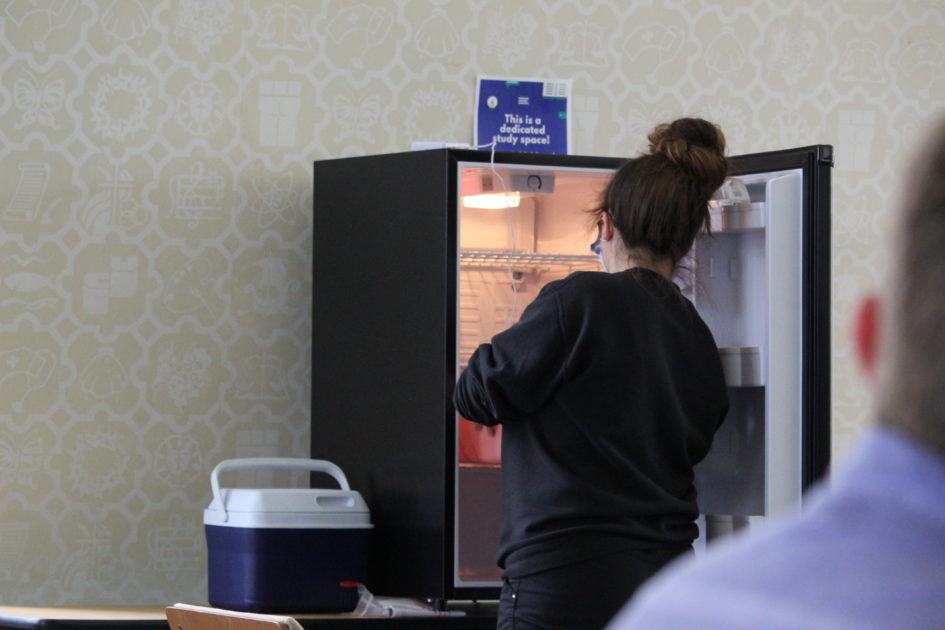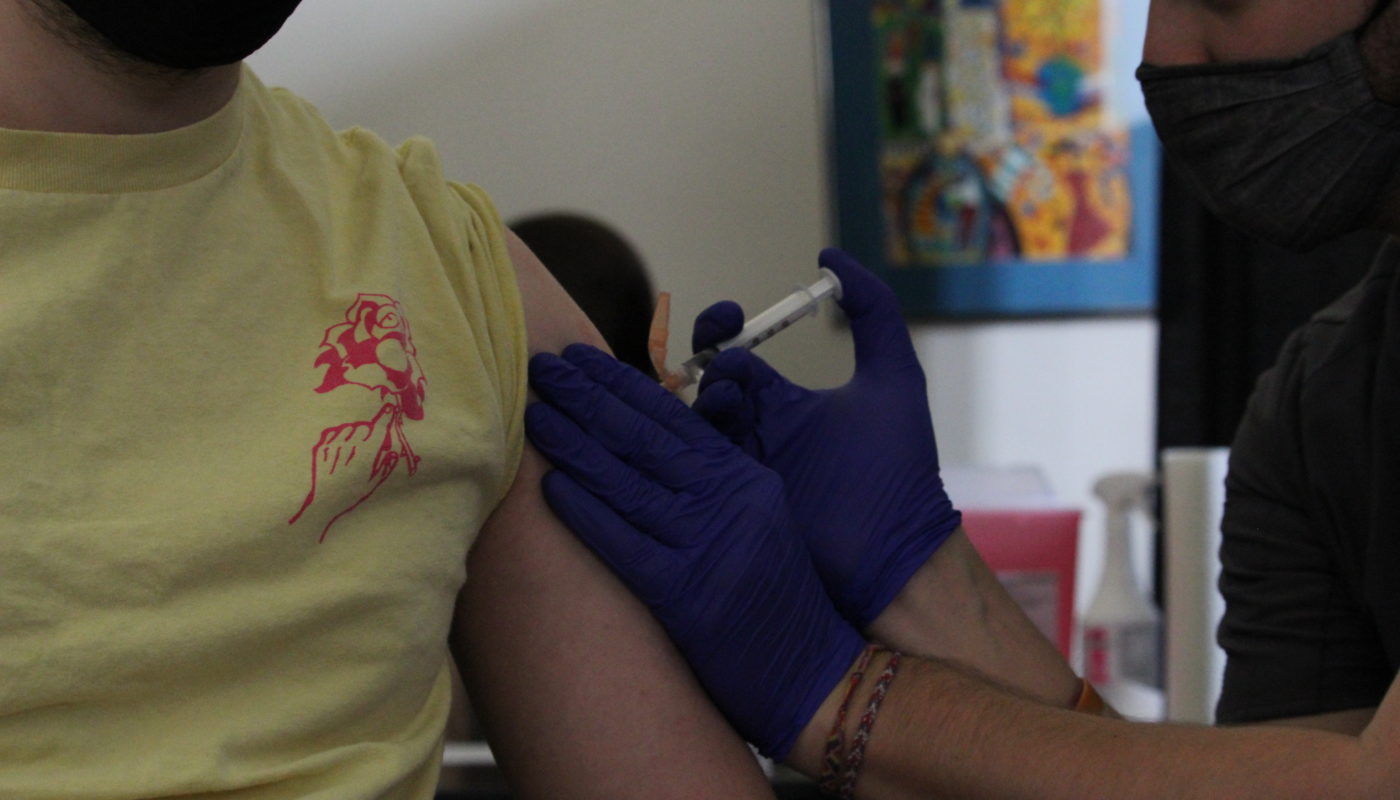With the FDA and CDC warning against the use of the Johnson & Johnson single-dose vaccine, Capital has now discontinued its on-campus clinic, but here’s an inside look of how it was operated.
April 8 saw the launch of Capital’s COVID-19 vaccine clinic. Two tables were set up in the Kerns Chapel where students could receive the Johnson & Johnson single-dose. The process took less than five minutes. No wait line at all.
Vaccines were kept in a mini fridge on a table off to the side of the room. Every so often, one of the clinic workers would check and see if the two nurses needed a refill of shots at their station.

After receiving a shot, students were asked to wait 15 minutes in case there were any side effects. During my self-monitoring session, a young woman had a reaction after receiving the dose. She described to the staff members that her body had become very hot.
She was given a bottle of water, and nurses escorted her out of the room so that she could have some privacy as they sat with her. Five minutes later, she returned and was free to leave the clinic.
Overall, the clinic appeared to be well operated and prepared.

Unfortunately, the Capital community was only able to get a glimpse of the full potential that this clinic could’ve had. On April 13, the FDA and CDC released a joint statement recommending that healthcare stop administering the Johnson & Johnson vaccine.
Across the U.S., six cases involving a rare and severe blood clot disorder were reported among women ranging from the ages of 18 to 48. At the time of writing, the investigation has neither confirmed or denied a correlation between the vaccine and this disorder.
Based on findings so far, this disorder developed between 6 to 18 days after the six women received their doses. This provides an important clue in understanding what’s happened. According to Dr. Anthony Fauci, women who received the shot over two weeks ago should have nothing to worry about.
Capital students shared their thoughts on the situation.
“I think there’s a risk associated with any new vaccine, and especially with COVID,” Megan Shoemaker, second-year, said. “There’s going to be some problems, there’s going to be some side effects, but pulling it… I mean, yeah it’s good for safety, but the numbers don’t show that it’s really such a huge issue.”
Some want to know why Johnson & Johnson was chosen as the vaccine to administer to college students anyway. Out of the other vaccines, Johnson & Johnson was the most recently taken out of development.
“I don’t know, I appreciate the precautions and stuff like that, but I also want to know why they picked the Johnson & Johnson one,” Dree Costanzo, second-year, said.


